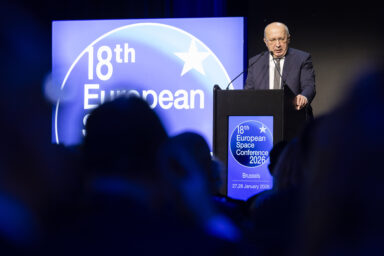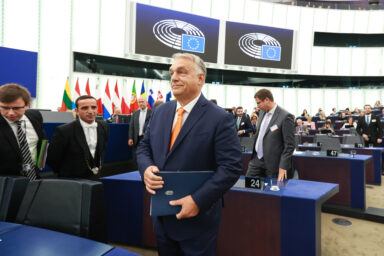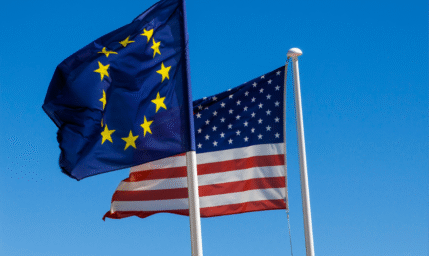A group of European and American financial giants, including JP Morgan Chase & Co, Commerzbank AG, ING Group NV, RBC Capital Markets, and Landesbank Baden-Württemberg, is backing a new multilateral bank aimed at turbocharging defence spending across Europe.
The Defense, Security and Resilience Bank (DSRB), spearheaded by former Nato innovation chief Rob Murray, seeks to raise €127bn to address urgent military needs while avoiding spikes in government debt. Its creation reflects growing anxiety over waning American military support under President Donald Trump and rising threats from Russia and China.
The DSRB plans to issue AAA-rated bonds backed by shareholder nations, lowering borrowing costs for states scrambling to modernise arsenals. It will also guarantee loans for smaller defence suppliers struggling to secure credit. “We’re trying to get armaments into our nation’s inventories as quickly as possible, such that we can deter, at least from a European perspective, Russia, and from an Indo-Pacific perspective, China,” Mr Murray told Bloomberg.
Outside government budgets
The bank aims to help NATO members meet a proposed five per cent GDP defence spending target — which Mr Murray estimates could unlock over an extra €1.5tn — by decoupling investments from rigid government budgets.
The initiative has drawn high-profile advisers, including Stuart Peach, former Nato Military Committee chairman, and John Cummins, ex-CEO of Aviva Capital Partners. An early test case could be the UK-Italy-Japan Global Combat Air Programme, which aims to deploy a stealth fighter by 2035. “The companies can do their capex and actually get on and start building,” Mr Murray noted, highlighting how multiyear DSRB financing could bypass bureaucratic delays.
You might be interested
Critical to the bank’s success is American buy-in. The US is “very much open” to supporting the project, Murray told reporters, emphasizing that European rearmament would boost US defence contractors.
Sidestepping Brussels red tape
The DSRB is in “advanced discussions” with the UK, EU, and US governments, according to a Sunday press release. Unlike most EU institutions, it will welcome non-EU allies like Norway and the UK, enabling faster decisions by sidestepping Brussels’ red tape.
European defence stocks surged over 10 per cent on Monday following a weekend of intense diplomacy. The rally coincided with efforts by Ukraine’s allies to mend ties between Mr Trump and Ukraine’s President Volodymyr Zelensky after their public clash over security guarantees.
We’re trying to get armaments into our nation’s inventories as quickly as possible, such that we can deter Russia and China. — Rob Murray, Defense, Security and Resilience Bank head
The DSRB’s development group will launch working sessions with financial firms in September to design its capital structure and investor outreach. Participating banks are advising pro bono.
Future-proofing defences
The bank’s launch underscores Europe’s scramble to future-proof its defences. With Mr Trump threatening to abandon Nato spending commitments and China expanding its military reach, the DSRB offers a mechanism to pool resources quickly and flexibly.
As Mr Murray puts it: “The question is, how do we finance that?” For now, the answer hinges on aligning wary governments, and proving that financial innovation can be as vital as firepower in an era of escalating geopolitical brinkmanship.










